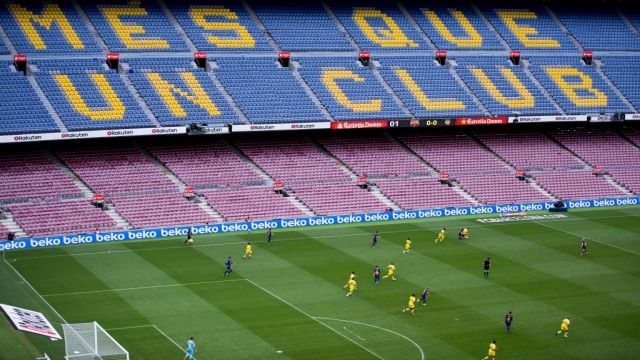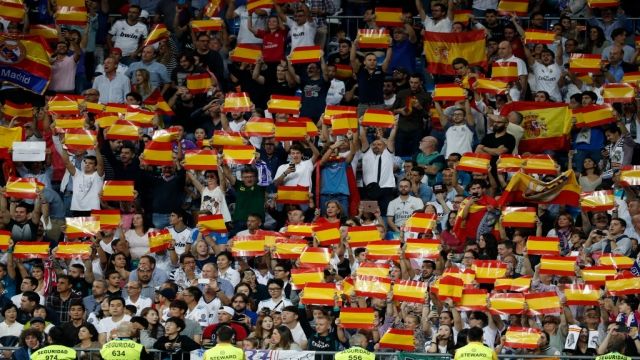

Share
23rd October 2019
01:13pm BST

 What's different between the postponed El Clasico and the fixture between Las Palmas and Barcelona in 2017? Barcelona requested that game be deferred after a heavy-handed police response to the ongoing vote. When this was refused by Spanish footballing authorities, Barca played the game behind closed doors. The scoreboard displayed a picture of a ballot box with the Spanish word 'democràcia' beside it. Barcelona had pinned their colours to the mast earlier in that week, releasing the following statement;
What's different between the postponed El Clasico and the fixture between Las Palmas and Barcelona in 2017? Barcelona requested that game be deferred after a heavy-handed police response to the ongoing vote. When this was refused by Spanish footballing authorities, Barca played the game behind closed doors. The scoreboard displayed a picture of a ballot box with the Spanish word 'democràcia' beside it. Barcelona had pinned their colours to the mast earlier in that week, releasing the following statement;
"FC Barcelona, in remaining faithful to its historic commitment to the defence of the nation, to democracy, to freedom of speech, and to self-determination, condemns any act that may impede the free exercise of these rights... Therefore, FC Barcelona publicly expresses its support for all people, entities, and institutions that work to guarantee these rights. FC Barcelona, in holding the utmost respect for its diverse body of members, will continue to support the will of the majority of Catalan people, and will do so in a civil, peaceful and exemplary way."It bears remarkable similarities to the one released in the aftermath of the sentencing of nine separatist leaders last week to between 9 and 12 years for sedition and misuse of public funds in the holding of the illegal referendum;
"FC Barcelona, as one of the leading entities in Catalonia, and in accordance with its historical record, for the defence of freedom of expression and the right to decide, today, after the condemnatory ruling issued by the Supreme Court in relation to the open process against the Catalan civic and political leaders, states that: In the same way that the preventive prison sentence didn't help to resolve the conflict, neither will the prison sentence given today, because prison is not the solution. The resolution of the conflict in Catalonia must come exclusively from political dialogue."All this decision has done is removed the right to peacefully protest on one of the biggest stages in world football. The idea of a raucous Nou Camp, bedecked in Catalan flags and roaring for their independence and the just treatment of their officials being beamed to televisions around the world was just not palatable for Spanish authorities. It's another attempt to remove the voice of peaceful Catalan protest. It's another suppression of a basic human right. When Real Madrid's game went ahead against Espanyol on the same day as that referendum, fans were handed a poster of the Spanish flag, flags that were then held aloft in the 12th minute. The contrast between a Bernabeu rocking with nationalistic sentiment and the Nou Camp earlier that day empty of its Catalan people sums up this issue perfectly. No stage. No protest. No voice.
 The reaction by police to the referendum itself, the protests on its first anniversary and then the marches against the decision to jail the nine leaders has been brutal and heavy-handed, as videos and images on the ground show. El Clasico has always been more than just a game, més que un joc. Postponing it in the hope that the protests have been quelled by December makes a mockery of democracy.
The reaction by police to the referendum itself, the protests on its first anniversary and then the marches against the decision to jail the nine leaders has been brutal and heavy-handed, as videos and images on the ground show. El Clasico has always been more than just a game, més que un joc. Postponing it in the hope that the protests have been quelled by December makes a mockery of democracy.Explore more on these topics: